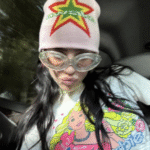A new film by MUNDIAL explores the impact of women’s football and why the gays are turbocharging the game from grassroots leagues up to the WSL.
On paper, attending a women’s football game is just good vibes and decently priced, albeit a byproduct of bigger issues, for a fun time out with your mates or S/O. Or both – if you’re a lesbian, your mate is also likely to be your S/O, or your ex who’s probably dating one of your friends, etc – we digress. A huge plus is that it also ideally comes without the misogyny and rowdy lad culture often found in men’s football culture. Women’s football comes with its own kind of rowdiness; it’s ours, and we’ve got a good thing going on. Now that women are getting to play on the same grounds as men, whatever any armchair pundit has to say about comparing the quality of the games, women’s football is taking centre stage – and coming home – again.
Read more: The Ultimate Queer Guide to Visiting Stockholm
But a key question on the minds of many: why is women’s football so gay? MUNDIAL’s new film of the same name seeks to find this out, celebrating the connection between women’s football and lesbian culture, sapphic love, or whatever you feel fits, in the process. Wherever you identify in the LGBTQ+ community, if you’re a women’s football-loving person and you’re reading this, then we can assume you’ve probably been twiddling your thumbs since the Lionesses brought it home this summer (again).
Become a Nonchalant VIP for ad free browsing.
But fear not. As we wait for the WSL to kick off again this September, the folks at football culture HQ, MUNDIAL, have sorted us out with this new documentary-style short film, diving into the BTS of the East London football world, and championing the iconic lesbian community behind it. The film is hosted by Whippets FC centre-back, Rosie Hewitson and Suky Stroud of Ex Girlfriend FC, who bravely headed over to London’s Dyke March to interview women’s football fans, while avoiding ex-girlfriends at all costs, to provide further tidbits and insights into the scene, why they love women’s football, and a sneak peak into queer women’s football internet culture, gossip and everything from the infamous “They’re lesbians, Stacy” meme to the “couples chart,” illustrating the dubious links among players on the scene.

“As a publisher constantly exploring everything that surrounds football, we have covered numerous subcultures over the years, and felt the relationship between women’s football and queer culture had so many layers it necessitated the film treatment and to be handled expertly by women from within that culture,” says MUNDIAL editor-in-chief, James Bird.
Article continues below.
“It’s often estimated that around a third of those playing for the Lionesses are openly LGBTQ+, but there’s more to this than listing out players – for those in the community, women’s football is a support network, it’s queer media, and it’s fun. We hope that has come across in the film.”
Women’s football: a brief history
Women’s football has hitherto been too often an afterthought to the men’s game in mainstream sports and media coverage. But recent years have seen women’s football step into the limelight, taking its third rise after the ‘first golden age’ in the UK in the 1920s, attracting crowds of 50,000 before a ban was introduced to stifle it until the 1970s, heralding a second resurgence. Across the world, women faced hostility around participation in football; its resilience in the face of adversity has transformed the women’s game into an act of resistance and rebellion.
As we know, women have been playing football since the game’s conception. And among those communities would have existed queer women, trans, and non-binary players, too, regardless of whatever legislation attempts to write our communities out of history. Women’s football communities today have been built on the legacy of the trailblazers that came before, laying the groundwork for the dedicated, intersectional, and legendary grassroots communities and fanbases that lift women’s football up today.
“In the midst of another huge Euros win, an ever-ropey political climate, and national treasures like Leah Williamson hard-launching her former Miss USA girlfriend, it felt like a perfect moment for this short film,” says Suky Stroud. “The grassroots football and fan scene can feel like a very queer bubble, but this isn’t a new phenomenon. Queer women, trans and non-binary people have always been part of football – whether banned or not – and we plan to be for the next hundred years.”
The film includes an interview with Joanie Evans from Hackney Women’s FC. Founded in 1986, HWFC was Europe’s first openly gay football team, and Joanie’s groundbreaking efforts have paved the way for the vibrant queer culture present in women’s football today. The film also features journalist Flo Lloyd-Hughes, Rachel Gould from Baller FC, the renowned women’s football gossip expert and founder of Studs, Becky Taylor-Gill, and Kirst and Ollie from the meme account Match of the Gay.

‘Why is Women’s Football so Gay’ Film Released by MUNDIAL on the Connection Between Women’s Football and Sapphic Love
Women’s football has made yet another remarkable comeback, with the England team reaching the final of the 2022 World Cup and winning the Euros consecutively in 2022 and 2025. Over the last few years, the Lionesses have been in the spotlight, captivating even those who don’t traditionally support England. Perhaps in reality, we shouldn’t call these ‘comebacks’; we were always here, on the fields, in the stands, watching screens and pulling strings behind the scenes.
Fans have witnessed players from their own Premier League teams rise to prominence on the international stage. There’s something about women’s football that feels bigger than just sport. It carries its own magical essence that taps into something insatiable. Whether it’s the beautiful game itself, seeing the girls thrive or the social camerarie and chaos that ensues around a fixture, the gays are well and truly driving the centre of the fan community, from Baller FC at the Big Penny Social to a trans fundraiser at Southeast London’s favourite pub, the Old Nun’s Head, grassroots football teams and women’s football fans across London are making things happen (because yes, we love women’s football south of the river too, shoutout to Bend It Like Peckham). It’s almost hard to know what to do with ourselves when there’s no game to be spectating, or no rumours to be speculating in the Footie GC.
Maybe that’s what makes everything around the game even more special. The creativity of bootleg fashion and DIY merch making, the grassroots nature of solidarity, the community focused, intersectional inclusive elements of the communities that are lifting women’s football off the pitch, be it online or at in-person events, or even just between groups of friends, peppered with a few mutual exes all bound together by the beautiful game and the community it inevitably provides.
Even in the crowded rooms, as we anxiously avoid eye contact in the inevitably of crossing paths with an ex or an old flame, or a stranger (are they checking me out or judging me?), you can sometimes cut the (sexual? anxious?) tension with a knife, almost as excruciating as the penalty shoot-out itself, nothing compares to it. Even in 2025, to have a community of queer people come together feels like an act of love, expressed in an act of service to show up with each other and build a world where everything feels possible and the future feels right here between the pint slurps, snogs and shout-singing along the way.
Enjoy,
Nonchalant x




